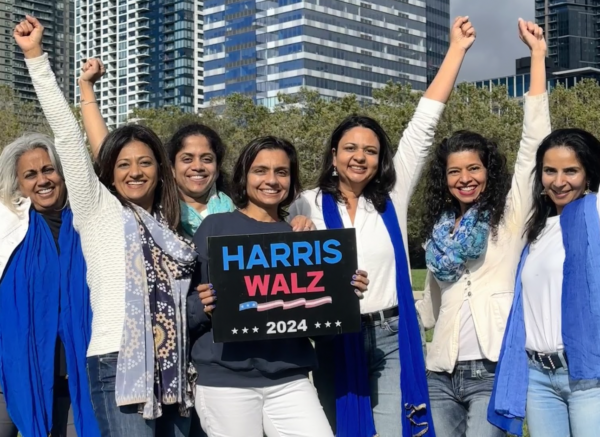Resilience, Progress, & Persistence
A Timeline of Indian American Political History
Late-1800s to Early-1900s
The first major wave of South Asian immigrants arrives in the United States, with thousands of Punjabi Sikh men embracing new opportunities in major American cities, contributing to the country’s increasing demand for farm labor. Despite facing challenges, including anti-Indian sentiment that festers in states like Oregon, Washington, and California, these pioneers continue to forge a path towards a brighter future for themselves and their communities.

1907
In Bellingham, WA, a mob of five hundred white men violently storm homes, assaulting and detaining 200 South Asian migrant workers overnight in the basement of City Hall. Within just ten days, the entire South Asian community leaves Bellingham, a clear indication of the mob’s success in achieving their aims. Similar unrest erupts in various locations throughout California and Vancouver.
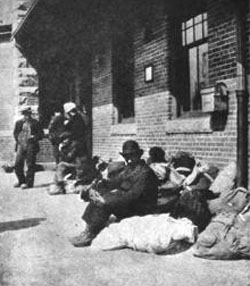
1913
Indian American students found the Pacific Coast Hindustan Association in Berkeley, California, which later evolved into the Ghadar Movement. This movement, grounded in the ideals of democratic socialism and militant nationalism, garnered significant global interest. Key figures of the Ghadar Movement, such as Bhagat Singh Thind and Tarak Nath Das, became influential advocates for Indian American civil rights throughout the 20th century.
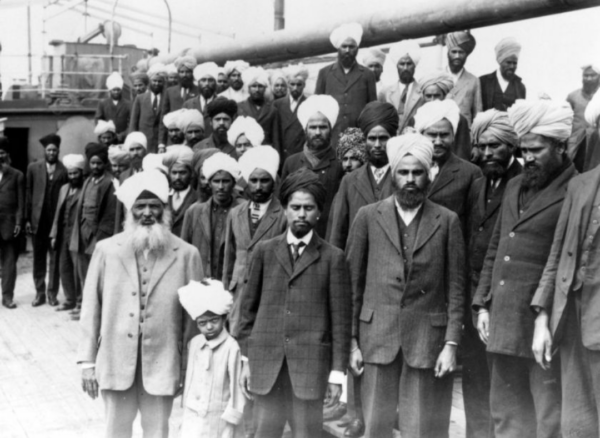
Late-1910s to Mid-1920s
Driven by increasing anti-Asian sentiment, the U.S. government implements the Immigration Act of 1917, prohibiting Indians and other Asians from the “Asiatic Barred Zone.” These immigration regulations lead to a gender imbalance in the Indian American community and, together with anti-miscegenation laws, hinder the growth of the Indian American population.

1923
In the case of U.S. v. Bhagat Singh Thind, the Supreme Court determines that Indian Americans are ineligible for naturalized citizenship under the Naturalization Act of 1906, reasoning that individuals of Indian descent do not qualify as “white.” Following this decision, officials suspend all pending citizenship applications from Indian Americans and revoke the citizenship of several who had already been naturalized.
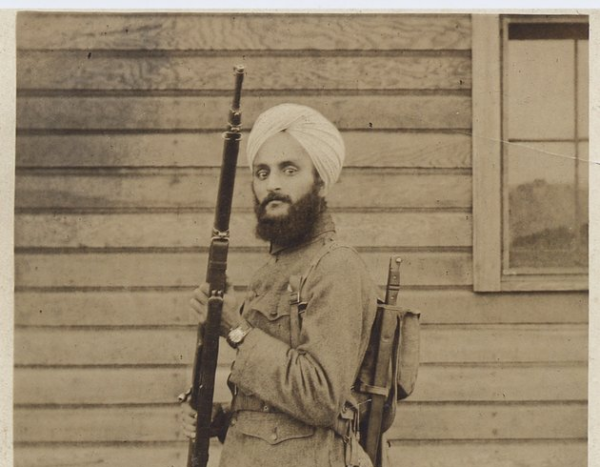
1946
Following years of activism from the Indian American community, highlighted by the efforts of India League for America President J.J. Singh and civil rights attorney Sakharam Ganesh Pandit, President Harry Truman signed the Luce-Celler Act of 1946. This landmark legislation enabled Indian Americans to become naturalized citizens, effectively overturning the U.S. v. Bhagat Singh Thind case. However, the act also established a limit of 100 Indian immigrants each year.

1947
After decades of worldwide advocacy, India achieved independence from the United Kingdom. Key figures in the American civil rights movement, such as sociologist W. E. B. Du Bois, poet Langston Hughes, and activist Bayard Rustin, actively supported Indian independence in the United States. They organized protests at the British Embassy and published writings in favor of Indian lawyer Mahatma Gandhi’s principles of nonviolent resistance. A decade later, Dr. Martin Luther King, Jr. traveled to India to honor Gandhi, recognizing him as “the guiding light of [the American civil rights movement’s] technique of nonviolent social change.”

1957
Dalip Singh Saund, a prominent Indian American political leader, made history by winning an open seat in the U.S. House of Representatives. With his election, he became the first Asian American, first Sikh American, first representative of a non-Abrahamic faith, and the first Indian American to ever serve in Congress. Throughout his three terms representing California’s 29th District, Saund remained committed to the ideals of Indian American suffrage and the quest for Indian independence from British rule. His tenure in Congress was marked by a strong advocacy for civil rights, efforts to enhance foreign relations with neighboring countries, and a focus on promoting socioeconomic advancement for his constituents.
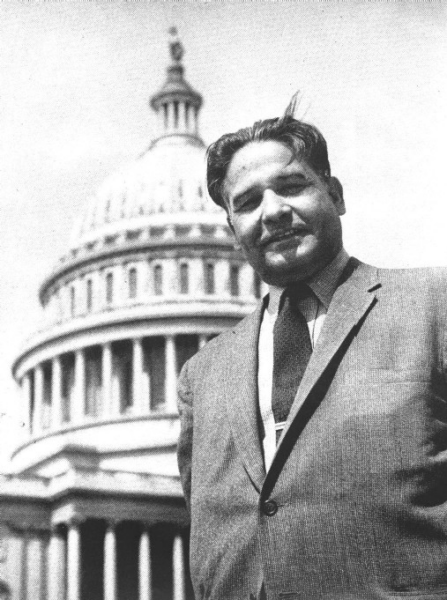
1960s to Mid-1970s
South Asian activists passionately advocate for issues such as racial awareness, anti-imperialism, and Pan-Asian unity, aligning themselves with the leaders of the American Civil Rights Movement in their fight against racial discrimination. Long before, Indian feminist Kamaladevi Chattopadhyay made headlines when she refused to leave the “whites only” section of a bus while traveling through the American South. Her brave act of defiance, along with her global efforts for racial justice, highlights the deep connections between South Asian activism and the American Civil Rights Movement.
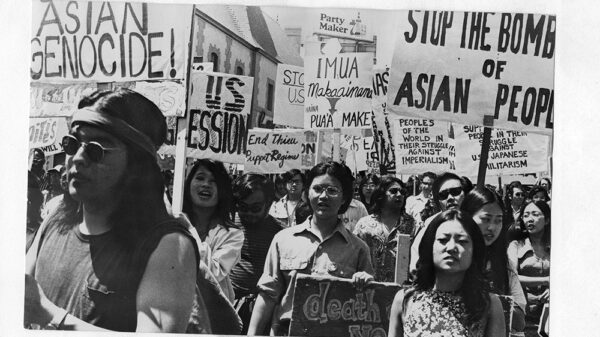
1965
Driven by the efforts of Black activists and the Civil Rights Movement, Congress enacted the 1965 Immigration Act, which President Lyndon B. Johnson signed into law. This legislation eliminated the discriminatory national origin quotas that had previously existed. Instead, it established a preference system prioritizing family reunification and skilled professionals. Consequently, this Act facilitated a significant influx of South Asian Americans, predominantly consisting of highly educated and skilled workers.
1987
The Dotbusters, an anti-Indian hate group based in Jersey City, New Jersey, launched an eight-year campaign of violence and intimidation affecting numerous members of the Indian American community. In reaction to these events, Indian American activists advocated for more robust hate crime legislation, which New Jersey enacted in 1990.

1990
Kumar Barve, a financial officer with Indian American roots, made history by being elected to the Maryland House of Delegates. He is recognized as the first Indian American to serve in a state legislature in the United States. Since his election, Barve has been actively engaged in statewide politics.
The Immigration Act of 1990 introduced the H-1B skilled worker visa program, marking the beginning of the third wave of Indian and South Asian migration to the U.S. This legislation has led to a significant influx of highly skilled workers in the IT sector, with Indian professionals obtaining around 75% of the employment-based visas allocated each year. However, the Act also imposed per country caps, restricting each nation to just 7% of the green cards, or permanent residency slots, available annually. Consequently, this has resulted in a backlog of over 1.2 million people waiting for green cards, predominantly of Indian descent, by the year 2020.
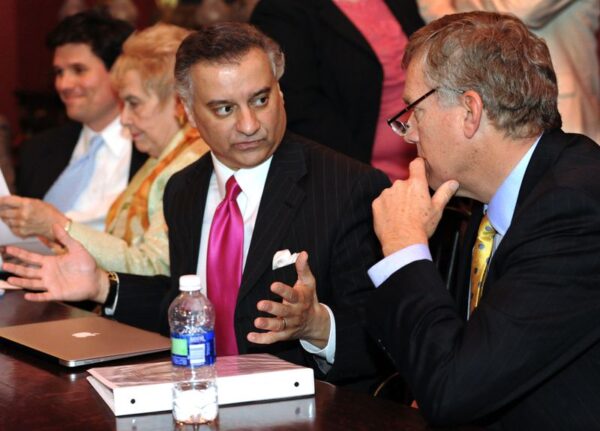
2001
In the aftermath of 9/11, Balbir Singh Sodhi, a Sikh American, was tragically murdered in Mesa, Arizona, in a hate crime.
In response to the increasing levels of Islamophobia and hate incidents, several South Asian advocacy groups, including South Asian Americans Leading Together (SAALT), the Sikh Coalition, and the Sikh American Legal Defense and Education Fund, mobilized to address these issues.
Uprendra Chivukula made history by becoming New Jersey’s first Indian American state legislator when he was elected to the New Jersey General Assembly. Over the next twenty years, the Indian American community in New Jersey experienced significant growth, and from 2007 to 2014, Chivukula held the position of Deputy Speaker of the General Assembly.
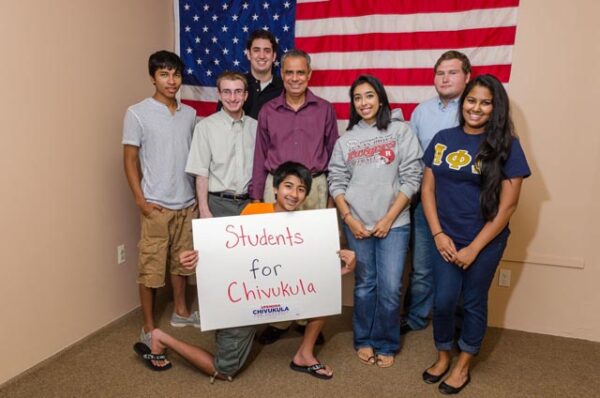
2007
Bobby Jindal is elected as the Governor of Louisiana, making history as the first Indian American governor. Eight years later, he again broke new ground by declaring his candidacy for the 2016 Republican presidential nomination, becoming the first major Indian American to do so. While his campaign initially garnered strong support from Indian Americans, Jindal later distanced himself from that identity, which left many in the community feeling disenchanted.
2008
The South Asian American Digital Archive (SAADA) was created to document the vibrant sociopolitical history of South Asians in the United States using primary source materials. This makes it the first digital archive specifically focused on preserving the history of South Asian Americans.
2009
Vinai Thummalapally, an entrepreneur, is appointed by President Barack Obama as the U.S. Ambassador to Belize, becoming the first Indian American ambassador in U.S. history. He served in this role until 2013.

2010
More than 30 Indian Americans campaigned for various political positions, setting a record for the highest number in U.S. history. Dr. Ami Bera, a physician from California, made history by being elected to the U.S. House of Representatives as the sole Indian American in Congress at that time. Additionally, Kamala Harris was elected as California’s first female Attorney General and the first Indian American to hold the position.
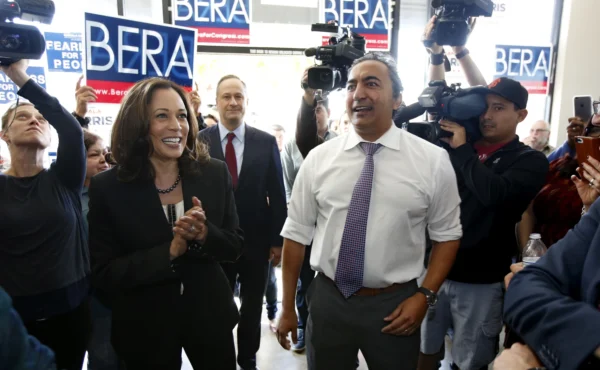
2011
Nikki Haley made history by becoming South Carolina’s first female governor and the nation’s first Indian American female governor. She went on to serve as the U.S. Ambassador to the United Nations from 2017 to 2018, making her the first Indian American U.S. Cabinet member.
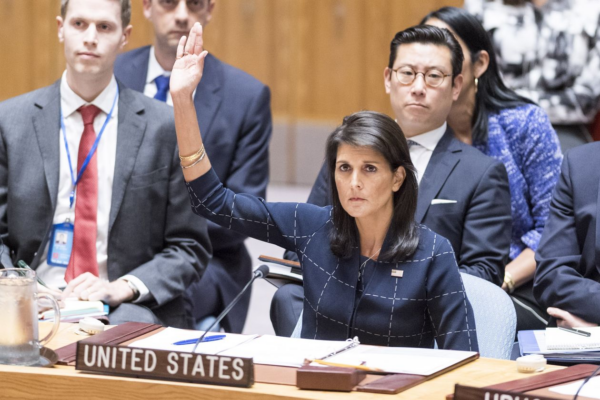
2012
A racially motivated mass shooting at a Sikh temple in Wisconsin results in the deaths of seven individuals and injuries to three others of Indian descent. This hate crime ignites widespread outrage across the nation, uniting Indian Americans from coast to coast and highlighting the ongoing issues of religious and racial discrimination faced by South Asians in the United States.
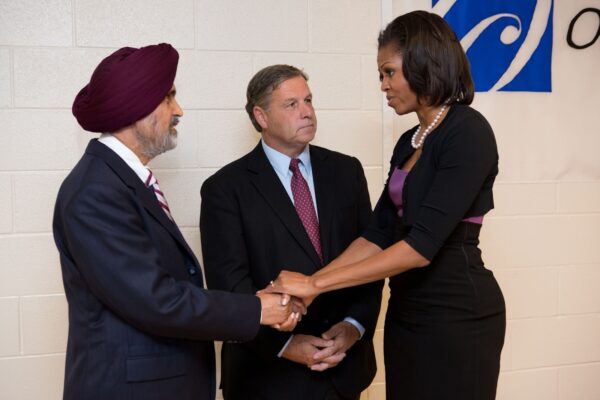
2014
Satya Nadella was appointed as the first Indian American CEO of Microsoft, which was then the fourth-largest company in the world by market value. The following year, Sundar Pichai took on the role of Google’s first Indian American CEO. They joined a group of influential Indian American leaders in business, such as Shantanu Narayen of Adobe, Indra Nooyi from Pepsi, and Ajay Banga of Mastercard, highlighting the increasing economic and political influence of the Indian American community.

2016
Deepak Raj, a Princeton-based entrepreneur, and Raj Goyle, a former Kansas State Representative, co-founded the Indian American Impact Fund to enhance Indian American political power and support the growing Indian and South Asian American electorate. The organization focuses on investing in Indian American candidates and increasing voter engagement. Over time, Impact raises more financial support for South Asian American political candidates than any other organization in history.
With Impact’s support, a historic five Indian Americans are elected to the U.S. Congress. Pramila Jayapal, Raja Krishnamoorthi, and Ro Khanna join Ami Bera in the House of Representatives, with Jayapal making history as the first Indian American woman elected to the House. Additionally, Kamala Harris becomes the first Indian American elected to the U.S. Senate.

2017
Indian American colleagues Srinivas Kuchibhotla and Alok Madasani are targeted in a racially motivated hate crime outside a bar in Olathe, Kansas. Kuchibhotla is killed, while Madasani and a bystander are severely injured. This attack occurs amid a climate of rising discrimination, including President Donald Trump’s attempt to ban foreign nationals from seven predominantly Muslim countries.
In the wake of the COVID-19 pandemic, Trump imposes additional immigration restrictions, notably affecting H-1B visa applicants, the majority of whom are Indian.

2018
A record 120 Indian Americans run for office, marking the highest number in history and reflecting the growing political influence of the Indian American community. As one of the fastest-growing ethnic groups in the U.S., the increasing Indian American population drives greater political representation. In a historic achievement, Gurbir Grewal is appointed Attorney General of New Jersey, becoming the first Sikh American Attorney General in U.S. history.
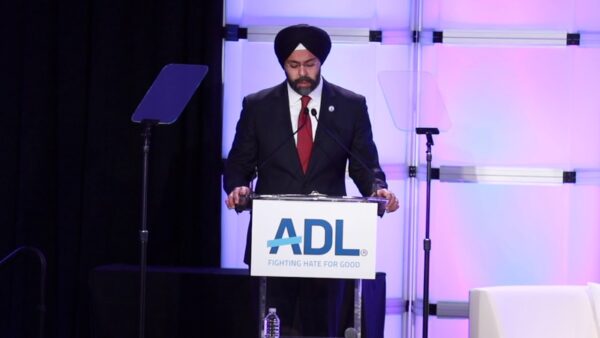
November 2020
The American people elect President Joe Biden and Vice President Kamala Harris, the first South Asian, Black, and female Vice President. The victory represents the most significant achievement in Indian American political history to date. Impact actively endorsed and supported the Biden-Harris campaign.
Indian American candidates also make significant strides, with figures like Sara Gideon (Maine, U.S. Senate), Hiral Tipirneni (Arizona, U.S. House), and Sri Kulkarni (Texas, U.S. House) running competitive campaigns to flip key congressional seats. On the state level, candidates like Nina Ahmad (Pennsylvania, Auditor General) and Ronnie Chatterji (North Carolina, Treasurer) aimed to reshape local politics.
Between 2016 and 2020, Indian Americans, along with other AAPI voters, experienced the largest increase in voter turnout of any racial or ethnic group in the U.S., contributing to the election of 56 Indian American and South Asian candidates, as well as U.S. Senators Jon Ossoff and Raphael Warnock and the Democratic majority in the U.S. Senate.
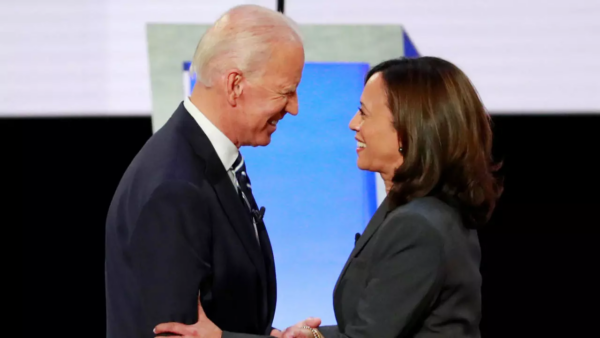
2021
Indian Americans and South Asians continue to break new ground in politics, with more than 100 candidates running for state, local, and municipal offices across the U.S. Of these, 55 candidates win, including many first-time contenders.
Notable victories include Shekar Krishnan and Shahana Hanif, who make history as the first Indian American and Bangladeshi American elected to the New York City Council. Aftab Pureval is elected mayor of Cincinnati, becoming Ohio’s first Asian American mayor. Additionally, Dr. Sadaf Jaffer is elected to the New Jersey Assembly, making history as the first Muslim and South Asian woman in the state legislature, alongside Shama Haider.
2022
South Asians continue to shatter barriers in elected office across the United States. Shri Thanedar becomes the first Indian American member of Congress from Michigan, and Aruna Miller, a former executive director of Impact, makes history as the first South Asian American woman to serve as lieutenant governor in U.S. history.
In Georgia, Nabilah Islam is elected as the first South Asian American woman to the State Legislature, while Farooq Mughal becomes the first South Asian American elected to the State House. Pennsylvania, Texas, and Illinois also celebrate their first South Asian Americans in the House of Representatives, with Dr. Arvind Venkat and Tarikh Khan in Pennsylvania; Dr. Suleman Lalani and Salman Bhojani in Texas; and Kevin Olickal and Nabeela Syed in Illinois.
Breaking new ground in the judiciary, Judge Monica Singh becomes the first female Sikh American judge in U.S. history, joining the Harris County Civil Court in Texas.
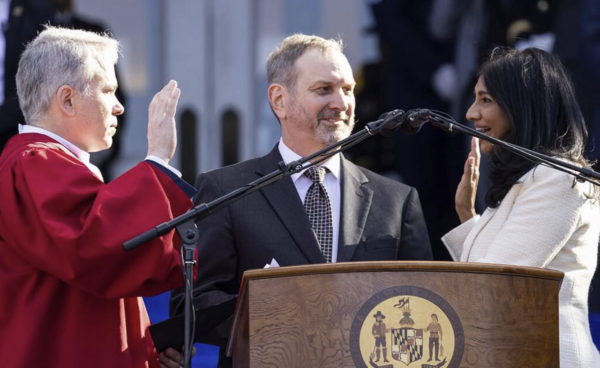
2024
Vice President Kamala Devi Harris makes history as the first South Asian American presidential nominee from a major party, inspiring a movement and galvanizing thousands of first-time South Asian volunteers to engage in the political process.
Suhas Subramanyam becomes the first Indian American to represent Virginia in the U.S. Congress, expanding the South Asian caucus in the House of Representatives to six members. Across the country, South Asians achieve historic victories at all levels of the ballot. Renuka Mayadev is elected as the first South Asian to the Wisconsin State Assembly, while Hanadi Nadeem joins the Nevada State Assembly. Darshana Patel secures a seat in the California State Assembly, and Danny Avula makes history as the first South Asian mayor of Richmond, Virginia.
